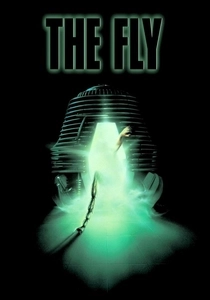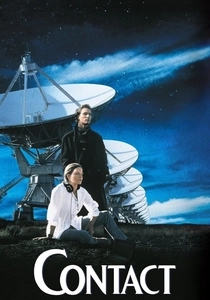Science fiction has always been a genre that captures the imagination, pushing the boundaries of what we believe is possible. This curated list of 10 films delves into the world of scientific projects, showcasing the triumphs and tribulations of scientists and their groundbreaking work. From space exploration to time travel, these films not only entertain but also inspire, offering a glimpse into the potential future of science and technology. Whether you're a science enthusiast or simply love a good story, these movies will take you on a thrilling journey through the realms of possibility.

The Day the Earth Stood Still (1951)
Description: An alien arrives on Earth with a message for humanity, leading to a scientific project to understand his intentions. This classic film explores themes of peace, technology, and the potential for human scientific advancement.
Fact: The film was one of the first to seriously address the implications of nuclear power and the Cold War.
 Watch Now
Watch Now 
The Andromeda Strain (1971)
Description: A team of scientists must contain and study a deadly extraterrestrial microorganism. This film is a suspenseful examination of biological threats and the scientific response to them.
Fact: The film was based on Michael Crichton's novel, which was inspired by real-life concerns about biological warfare.
 Watch Now
Watch Now 
The Fly (1986)
Description: A scientist's experiment with teleportation goes horribly wrong, blending his DNA with that of a fly. It's a cautionary tale about the unintended consequences of scientific ambition.
Fact: The film's special effects, particularly the transformation of the scientist, were groundbreaking for the time.
 Watch Now
Watch Now 
Contact (1997)
Description: This film explores the discovery of an alien signal and the subsequent project to build a machine that could transport a human to meet the extraterrestrial intelligence. It's a profound look at humanity's quest for knowledge and connection with the cosmos.
Fact: The film was inspired by Carl Sagan's novel of the same name, and Sagan himself was involved in the production, ensuring scientific accuracy.
 Watch Now
Watch Now 
Gattaca (1997)
Description: In a future where genetic engineering determines one's social class, a man with natural genes must impersonate a genetically superior individual to achieve his dream of space travel. It's a thought-provoking look at eugenics and human potential.
Fact: The film's title is derived from the letters representing the four nucleic acids of DNA.
 Watch Now
Watch Now 
Primer (2004)
Description: Two engineers accidentally invent a time machine and must navigate the complex ethical and scientific implications of their discovery. It's a mind-bending exploration of time travel and its consequences.
Fact: The film was made on a budget of only $7,000, with the director Shane Carruth playing one of the lead roles.
 Watch Now
Watch Now 
Sunshine (2007)
Description: A team of astronauts embarks on a mission to reignite the dying sun, showcasing the extreme measures science might take to save humanity.
Fact: The film features a scientifically accurate portrayal of the sun, with special effects designed to reflect real solar phenomena.
 Watch Now
Watch Now 
Interstellar (2014)
Description: A team of astronauts travel through a wormhole in search of a new home for humanity. The film delves into complex scientific theories like time dilation and relativity, making it a standout in the genre.
Fact: Christopher Nolan worked with physicist Kip Thorne to ensure the science was as accurate as possible.
 Watch Now
Watch Now 
Europa Report (2013)
Description: A crew of astronauts travel to Jupiter's moon Europa to investigate the possibility of life. The film is presented as a documentary, giving a realistic portrayal of space exploration and scientific discovery.
Fact: The film was praised for its scientific accuracy and realistic depiction of space travel.
 Watch Now
Watch Now 
The Martian (2015)
Description: After being stranded on Mars, astronaut Mark Watney must use his scientific knowledge to survive. This film showcases the ingenuity of science in the face of adversity, making it a perfect fit for this collection.
Fact: The film's depiction of Mars was praised for its accuracy, with NASA providing technical advice.
 Watch Now
Watch Now 








